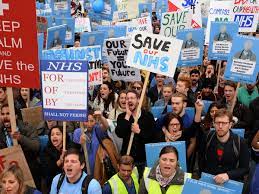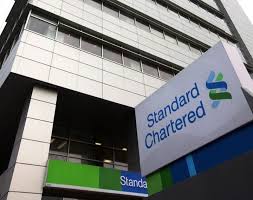Since there are few, if any, indicators that their salary dispute with the government will be resolved, tens of thousands of doctors in Britain’s publicly funded healthcare system will strike for an additional four days in August, according to their union.
Doctors in their early career stages will stage a walkout in England between August 11 and August 15 following a five-day strike that was dubbed the longest in the history of the National Health Service.
The British Medical Association’s junior doctors’ committee co-chairs, Drs. Robert Laurenson and Vivek Trivedi, said, “It should never have come to the point where we needed to announce a fifth round of strike action.”
“Our message today remains the same: act like a responsible government, come to the table to negotiate with us in good faith, and with a credible offer these strikes need not go ahead at all,” they continued.
The roughly 75,000 so-called junior doctors are requesting a 35% salary increase to return their income to 2008 levels after accounting for inflation. However, the government is only providing them with a 6% raise plus a further consolidated increase, and Prime Minister Rishi Sunak has vowed that no more negotiations will take place.
The United Kingdom has had disruptive strikes as workers, including teachers, train drivers, and nurses, have pushed for pay that maintains pace with a fast rise in consumer prices, like other countries in Europe.
The latest junior doctor strike which will certainly add to the backlog at the struggling health system because young doctors perform much of the regular work in hospitals and work extremely long hours. The NHS reports that throughout the past eight months of industrial action in England, 819,000 appointments, operations, and treatments have already been postponed.
Not only are the junior doctors in the NHS engaged in a salary conflict with the government. In hospitals all around England, radiographers began a 48-hour strike on Tuesday, while top doctors, known as consultants, took a strike last week for the first time in more than ten years.
Laurenson and Trivedi stated, “If the prime minister was hoping to demoralize and divide our profession with his actions, he will be disappointed.”
The government announced wage rises for millions of public sector employees earlier this month, including teachers, who were one group that chose to end their strike action in response to the offer made (a salary raise of 6.5% in their case).
The rate of inflation for the first time in years has fueled strikes throughout Britain. Supply chain problems brought on by the pandemic initially fueled price increases, followed by Russia’s full-scale invasion of Ukraine, which drove up the cost of food and oil.
Even though it has decreased from its double-digit peak to 7.9%, inflation is still significantly higher than the Bank of England’s 2% target. The central bank’s main interest rate is anticipated to increase by another 0.25% next week, reaching a new 15-year high of 5.25%.

















